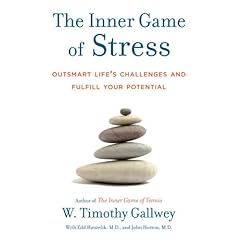Welcome to the first official post for Bedside Manners. As a sexual health researcher and book author, I receive a lot of emails from women and men who are dealing with sexually transmitted diseases. Yesterday, I replied to Liza, a 25 year-old married, monogamous woman who had just been diagnosed with a serious cervical HPV infection and treated via LEEP. She could not understand how this had happened, since she had been getting pap smears during her annual gynecological exams for the past 10 years, and her husband had never been diagnosed with genital warts. Her doctor told her it was “bad luck,” and now she is worried about the possibility of having an oral HPV infection, wondering whether her cervical infection is cured, and trying to figure out how to this will affect her marriage.
By getting annual pap smear exams, Liza has been doing the right thing. Unfortunately, most medical practitioners don’t explain that pap smears only sample a small area of a woman’s cervix. So, it is possible to receive a “normal” pap smear result when there are HPV-infected/abnormal cell changes in other portions of the cervix.
With Liza’s husband as her only sexual partner, it’s key for him to get thoroughly examined for HPV/genital warts. If HPV-infected cells are found, then he should have them removed via one of several treatment options. Once both of their bodies have healed from treatments, the couple should strongly consider using condoms during sex (note: condoms reduce but do not eliminate the risk of HPV transmission).
Given Liza’s concern about oral HPV, a ‘HPV test’ can determine the specific strain of the virus. HPV 16 has been linked to cervical cancer and to oral/head/neck cancers. So, an important follow-up exam after receiving a genital HPV diagnosis is to see a dentist: I encouraged her to share that she’s been exposed to HPV orally and request a thorough exam.
As I concluded my reply to Liza, I realized that I needed to address the stress that she was clearly experiencing. Medical sociologists have often written about how disease can cause dis-ease, an illness often causes a patient to lose her sense of wellbeing. In the case of socially stigmatizing and medically incurable infections, like HPV, stress is almost unavoidable for newly diagnosed patients. In my book, Damaged Goods?, I detail specific strategies for handling the variety of stressors that come with a genital HPV or herpes infection, but I’ve decided to wrap up today’s post with a general note about stress.
I was fortunate to attend a talk last night by the authors of a new book, The Inner Game of Stress. Tim Gallwey has teamed up with two physicians, who practice a patient-centered approach to integrative medicine, to combine medical research with his executive coaching techniques. The result is a thoughtful self-help approach to stress management that encourages readers to be assertive patients. As a medical sociologist, I have written about the health impacts of practitioner-patient interactions and was familiar with the body of research showing how stress can weaken a person’s immune system.
For people, like Liza, who are battling a virus, it is important to not only empower yourself with knowledge about your particular illness but also to strategize how to strengthen your immune system. In addition to the obvious recommendations of decreasing unhealthy behaviors and increasing healthy ones, I encouraged her to find sources of emotional and social support. Some who are facing a stigmatizing illness may find comfort by talking with trusted friends, while others may prefer the neutrality of a therapist, and many may find empowerment in a book.



Comments 3
Virginia — September 27, 2009
Thanks Adina! Yea, the research is just piling up on the impact of stress on our well-being and even our capacity to problem solve. Links a lot of troubles together. Seems like people need skills--like the ones you are suggesting and that you recommend in Damaged Goods. But do you think that some of the stress comes from people not feeling "entitled" to express their fear about their health or their aggravation about their health care? Seems like it extends beyond sexual health: I keep thinking about Deborah Lewis's 7/6/09 LA Times column -- about breast cancer -- and my own related GWP column -- about infertility [http://girlwpen.com/?p=1683]. Deborah makes the profound point, "I do not believe that we earn our illnesses...." I suspect that our health care, from sexual and reproductive health to immune issues and even cancer, gets stressful because of this deep down belief that we did something wrong. Concrete advice like yours helps so much.
gwp_admin — September 27, 2009
Thanks, Virginia. I agree that doctors and laypeople often blame many patients for their illnesses. Blame is especially prevalent when talking about diseases that we've learned to associate with ‘bad’ behavior choices. After all, it often alleviates anxiety in the general public when we are convinced that serious illnesses are caused by immoral/negligent/irresponsible/unintelligent behaviors. However, holding patients solely accountable for their health results in us socially constructing a wide array of diagnoses as stigmatizing: a large number of patients do not feel entitled to good health, let alone good health care. That's got to be a big source of stress, which likely damages a stigmatized patient's immune system and mental health.
gwp_admin — October 1, 2009
Welcome, Bedside Manners! Awesome premiere, of course :)